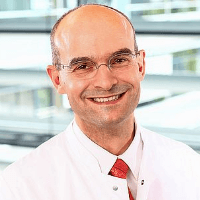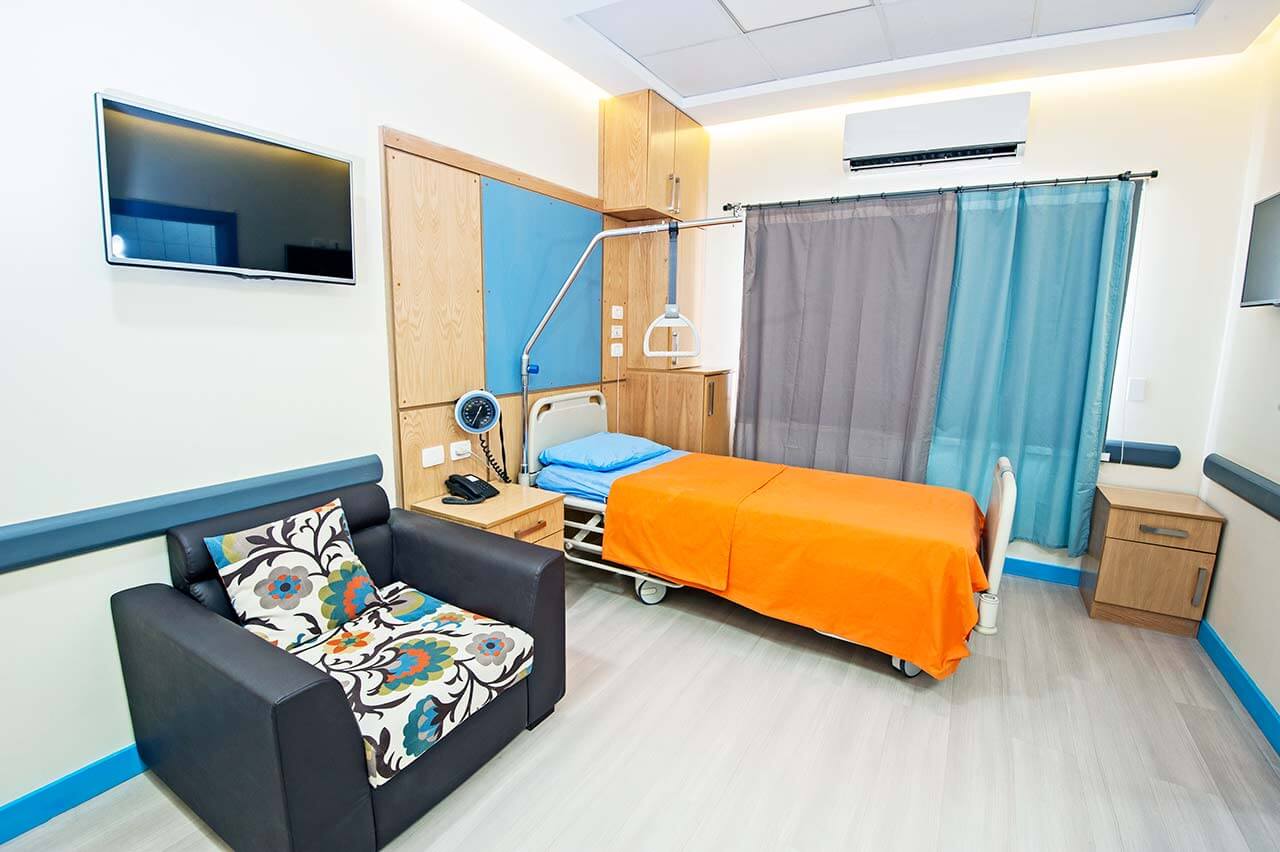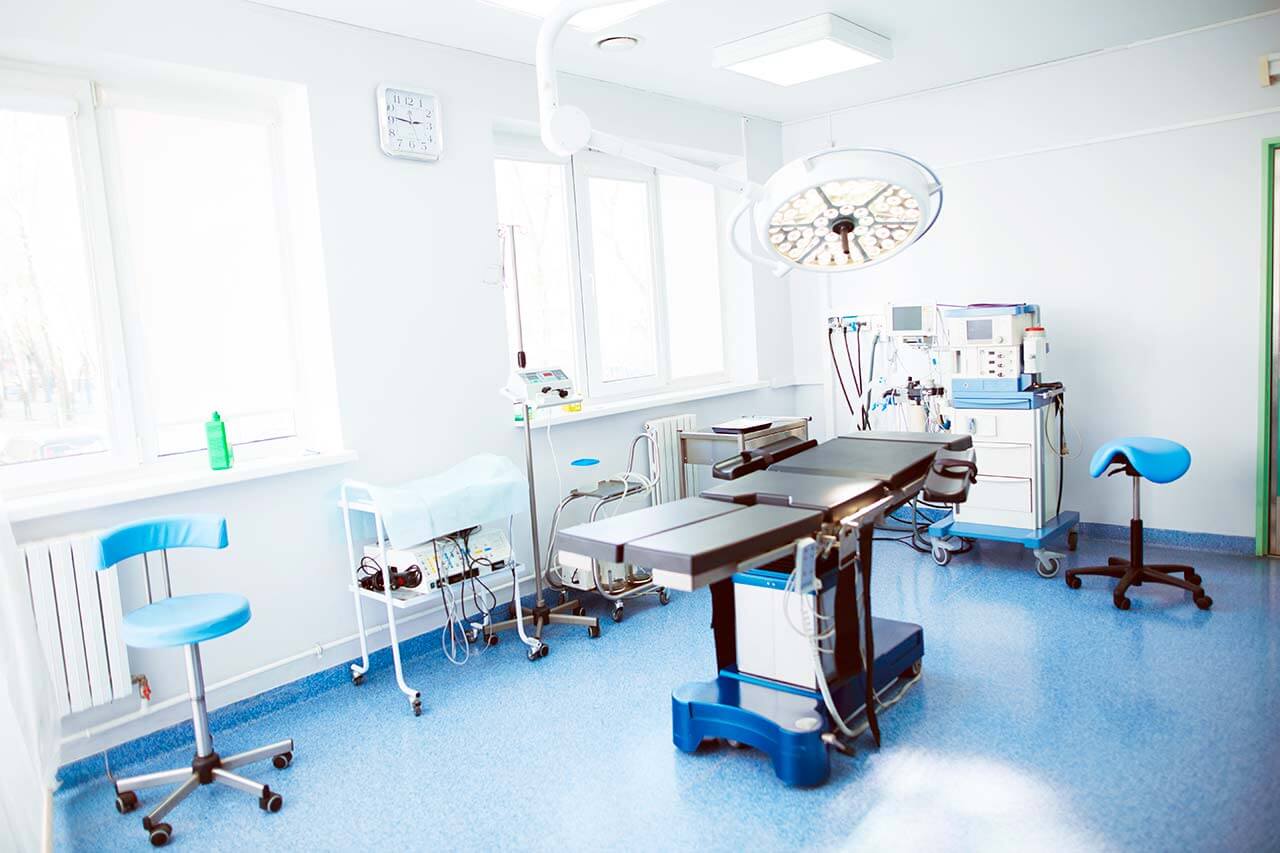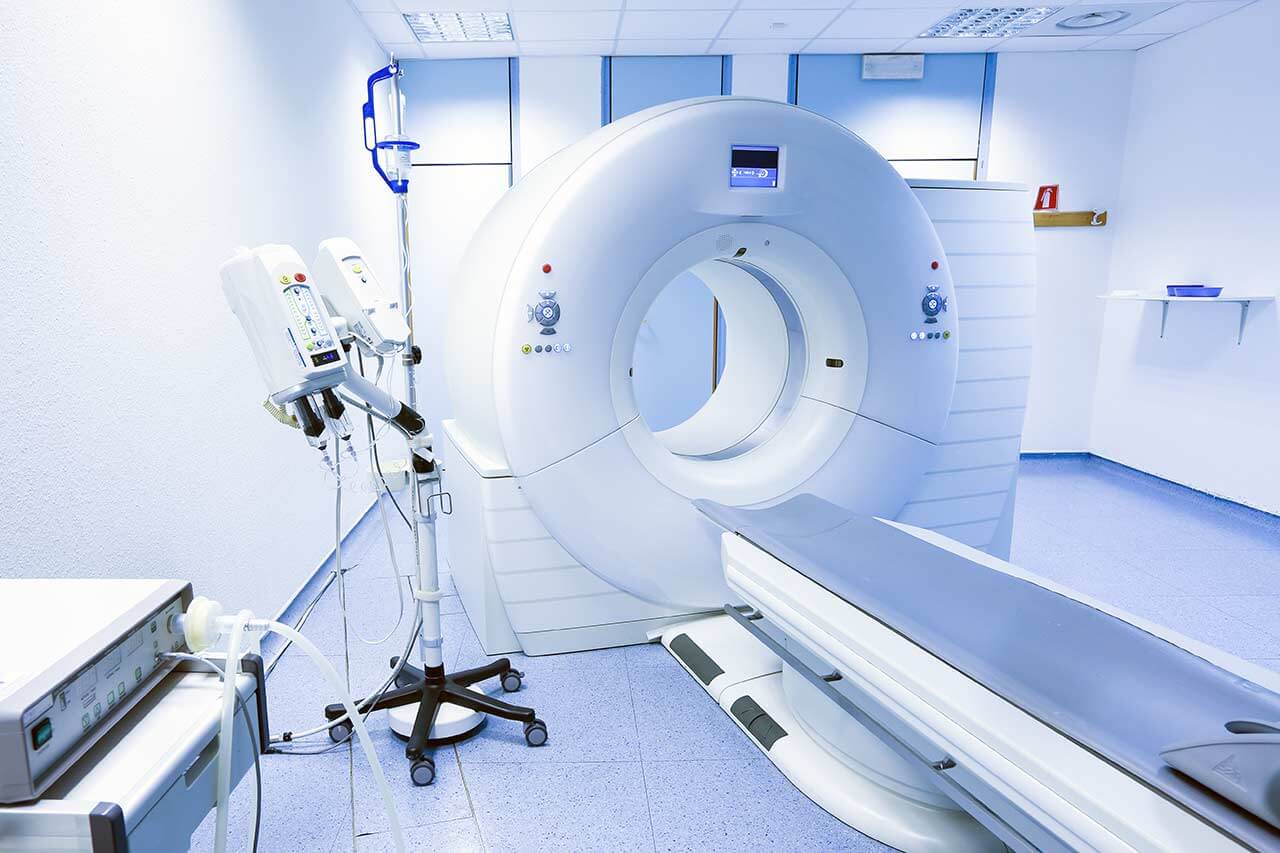
About the Department of Neurology and Epileptology at Municipal Hospital Karlsruhe
The Department of Neurology and Epileptology at the Municipal Hospital Karlsruhe offers all modern medicine options for patients with diseases of the central and peripheral nervous systems. The department includes a modern Neurological Intensive Care Unit and an advanced Stroke Unit for the effective treatment of patients with stroke, certified under the requirements of the German Stroke Society. The hospital has 78 beds to accommodate its patients, including 12 beds in the Intensive Care Unit with the possibility of mechanical ventilation. The department annually admits more than 3,000 inpatients. The medical facility has an excellent diagnostic base for assessing the state of the nervous system and detecting the slightest pathological changes. As for treatment, the department's neurologists use modern drug therapy regimens and other types of conservative treatment. Experienced neurosurgeons are engaged in the therapeutic process if the patient requires surgery. The Head Physician of the department is Prof. Dr. med. Georg Gahn.
The department primarily focuses on treating stroke, movement disorders (for example, Parkinson's disease), inflammatory and immunological lesions of the nervous system (for example, multiple sclerosis, myasthenia gravis, Guillain-Barré syndrome), neuromuscular and neurodegenerative diseases, and epilepsy. Of great importance is the cooperation with doctors of related medical specialties, particularly with neurosurgeons, vascular and thoracic surgeons, otorhinolaryngologists, and neuroradiologists (CT, CT-angiography, MRI, MR-angiography, angiography, neurovascular interventions, coiling, stent implantation, etc.).
The key area of the department's clinical activity is stroke treatment. To provide medical care to patients with this pathology, the department has a specialized Stroke Unit, founded in 1999. The Stroke Unit has an experienced medical team consisting of neurologists, radiologists, neurosurgeons, vascular surgeons, internists, physiotherapists and speech therapists. The main treatment for acute stroke is lysis therapy. The department's specialists perform more than 250 such procedures annually and have impressive experience in the interventional treatment of stroke. The beds in the Stroke Unit are equipped with modern monitoring systems, with the help of which doctors monitor the patient's vital signs, including blood pressure, heart rate, blood glucose levels, body temperature, etc. The department offers effective stroke treatment under current clinical protocols.
The department's neurologists also successfully cope with the treatment of neuromuscular diseases. The most common pathologies in this group include myopathies, myasthenia gravis, polyneuropathies, peripheral nerve compression syndromes, spinal muscular atrophy, and amyotrophic lateral sclerosis. The diagnostic protocol for the detection of the above-mentioned diseases includes electrophysiological tests (electromyography, electroneurography, autonomous functional diagnostics), muscle and nerve ending biopsy, assessment of the act of swallowing, genetic tests, and muscle and heart MRI. Based on the data of a comprehensive examination, an optimal regimen of drug therapy is developed. In addition, with appropriate indications, it is also possible to carry out plasmapheresis (removal of antibodies against nervous tissue from blood plasma, etc.).
The department specializes in treating inflammatory diseases of the nervous system: meningitis, encephalitis and multiple sclerosis. A diagnosis can be confirmed with modern tests, including MRI, MR spectroscopy, cerebrospinal fluid analysis and registration of evoked potentials. When fighting against inflammatory diseases of the nervous system, plasmapheresis, monoclonal antibody therapy, intrathecal administration of corticosteroids, and chemotherapeutic agents are used. Additionally, doctors prescribe physiotherapeutic procedures, ergotherapy, massage, etc.
The department's therapeutic offer is complemented by epilepsy treatment, which is one of the most common and rather dangerous diseases of the central nervous system. The main diagnostic method for suspected epilepsy is electroencephalography (for example, sleep-deprived electroencephalography and video-EEG monitoring). In most cases, it is sufficient to carry out treatment with antiepileptic drugs to prevent epileptic seizures and maintain a patient's high quality of life. Monotherapy is suitable for most patients, but a combination of several drugs may sometimes be required. At the same time, it is essential to strictly follow the attending physician's instructions, without lowering or increasing the dose of the drug, and also not to stop taking the medications. Patients with epilepsy usually have a long course of drug therapy that lasts several years.
The department's main clinical activities include:
- Diagnostics and treatment of stroke
- Lysis therapy
- Diagnostics and treatment of neuromuscular diseases: myopathies, myasthenia gravis, polyneuropathies, spinal muscular atrophy, and amyotrophic lateral sclerosis
- Drug therapy
- Plasmapheresis
- Neurological intensive care
- Diagnostics and treatment of inflammatory diseases of the nervous system: meningitis, encephalitis and multiple sclerosis
- Plasmapheresis
- Therapy with monoclonal antibodies
- Intrathecal administration of corticosteroids
- Chemotherapy agents
- Diagnostics and treatment of neurodegenerative diseases: Parkinson's disease, dementia, ataxia and tremor
- Drug therapy
- Deep brain stimulation (in collaboration with neurosurgeons)
- Diagnostics and treatment of epilepsy
- Drug therapy
- Neurological intensive care (special focus on intensive care and mechanical ventilation in patients with severe neuromuscular diseases, cerebral hemorrhage and cerebrovascular accidents, and epileptic seizures and inflammatory diseases of the nervous system)
- Systemic and intra-arterial lysis
- Mechanical recanalization ("thrombectomy")
- Therapy for intracranial hypertension (for example, craniotomy with a continuous intracranial pressure measurement, and intraventricular lysis)
- Non-invasive monitoring methods
- Invasive blood pressure and circulation monitoring, including advanced hemodynamic monitoring (PICCO)
- All types of hemodialysis, including citrate dialysis, hemofiltration or plasmapheresis (in collaboration with the Department of Nephrology)
- Other medical services
Curriculum vitae
Prof. Dr. med. Georg Gahn received his medical education at the University of Wuerzburg. As a student, he trained at Louisiana State University, Shreveport and the University of Rochester, USA. In 1994, Prof. Gahn received his Doctoral Degree at the University of Wuerzburg with a thesis titled "Mutations in the H-2 complex: an attempt to isolate mutated T lymphocytes using magnetic cell separation". From 1993 to 1995, the doctor completed his internship in the Department of Neurology at the University Hospital Wuerzburg and then received his scholarship, thanks to which, until 1996, he was engaged in the treatment of neurovascular diseases at the Massachusetts General Hospital of Harvard Medical School in Boston, USA. In 1996, Dr. Georg Gahn joined the University Hospital Carl Gustav Carus Dresden, where he worked as an Assistant Physician in the Department of Neurology until 1999 and in the Department of Psychiatry until 2000. In 2000, the Professor received his board certification in Neurology and was appointed as a Senior Physician in the Department of Neurology at the University Hospital Carl Gustav Carus Dresden. In April 2003, he completed his habilitation on the subject: "Transcranial color-coded duplex sonography in cerebrovascular diseases" at the Faculty of Medicine of the Dresden University of Technology with a simultaneous appointment to the position of PD. The doctor then completed his advanced training courses in Special Neurological Intensive Care and Clinical Geriatrics, after which he was appointed a Deputy Head of the Department of Neurology in July 2003. In 2007, he completed a three-year training for a Master of Business Administration in Healthcare Management at the Dresden International University. Since June 1, 2008, Prof. Georg Gahn has been heading the Department of Neurology and Epileptology at the Municipal Hospital Karlsruhe. On July 4, 2008, he was appointed an Extraordinary Professor at the Dresden University of Technology.
Photo of the doctor: (c) Städtische Klinikum Karlsruhe





